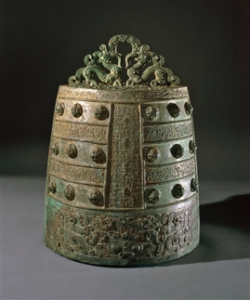For the past four or so years, I have been teaching a class at LSE called “Chinese Political Thought.” It is very hard to teach this subject, which tries to present Chinese texts as having something meaningful to say to the discipline of political philosophy. Why is it so hard? There are two main reasons, and they have nothing to do with the language (I speak and read Chinese, including literary Chinese, but I teach in English) or my students (who are generally interested in what I have to say). The first reason has to do with disciplinary blindnesses. The second has to do with the nature of Chinese thought itself, and the potential role that decolonizing might (or—spoiler alert—might not) play in helping us include Chinese thought (and potentially other forms of historically-excluded thought) in our curricula.
One reason Chinese political thought is so hard to teach is that, as Bryan van Norden and Jay L. Garfield pointed out in a controversial New York Times op-ed, philosophy departments systematically exclude the teaching of non-Euro-American thought, for no good intellectual reason. Although most laypeople would think that the discipline of “political philosophy” would include any kind of political thought from anywhere or any period in the world, it doesn’t. Despite the emergence of “comparative philosophy” and “comparative political theory”—fields to which I have at various points contributed—the mainstream debates in the discipline remain centered on the dilemmas of first-world, Western, liberal democracies. This means that although political philosophy might be helpful in thinking through what popular consent means, or how we might distribute the sources of wealth in an egalitarian way, it has historically had very little to say about, for example, how a non-democratic state might be legitimated or what Islamic feminism might look like.
These questions suggest what we are missing out on by not considering truly global thought, that is, thought that encompasses diversities of both time and space. For these reasons, scholars and activists committed to “de-colonizing the curriculum,” including here at LSE, have made passionate and convincing cases for including more women and Black and Minority Ethnic (BME) thinkers in our reading lists (and in our brains and classrooms!) and for advancing better historical awareness of where the ideas we teach in class come from. Calls to “decolonize” have been hugely helpful in drawing attention to how European colonialism structured academic learning in ways that deemed non-European thought (including, of course, Chinese thought) deviant, backward or worthless. And its calls for inclusion certainly make teaching Chinese political thought more fashionable.
But decolonization is not a panacea for all exclusions of the modern university. And it doesn’t always help me teach Chinese thought in a more effective way, for reasons having to do with the particular character of Chinese thought itself. This is not to claim that there exists some specific essence of Chinese thought that is difficult to grasp; rather, part of the problem lies in the fact that what is “Chinese thought” is so deeply contested, over so many thousands of years, that deciding what should be taught is one key dilemma in including it. There exist Chinese-language texts relevant to political thought that date back more than 3,000 years, and until about the early 20th century whole generations of elite scholars were forced to memorize large parts of that corpus for regurgitation on civil exams in hopes of government employment. These scholars produced a very complex intellectual ecosystem which, while never even close to being self-contained, was certainly internally self-referential and densely cumulative.
This makes it pretty tough not only to select which texts from that (permeable and dynamic) ecosystem to read, but also to understand them once you have read them. Their richly allusive references to past texts are key to comprehending their layers of meaning, but to casual readers (or university students) who have not spent a childhood memorizing canonical texts in their original language, they are not that easy to decipher in a 10-week class taught in English—much less as components of broader survey courses that aim to be more “inclusive” of non-Western perspectives.

The problem deepens when we remember that East Asia did not experience direct European colonial rule in anything like the way other parts of the world had. Although European and American domination hugely influenced the direction of intellectual inquiry everywhere in the world in the 19th century and after, contemporary Chinese-speaking academics (including Western ones like myself) continue to read and cite certain kinds of pre-modern scholarship as authoritative sources of knowledge. This means that there is a lot of Chinese thought—and surely thought from lots of other places and times as well—that just won’t get looked at very closely if we are mainly trying to deconstruct the effects of European colonial domination on modern knowledge production. And there will be many ways of knowing the world that are excluded as a result. In other words, it may be that the call for decolonization ironically enforces its own kinds of exclusion, by privileging the historical experience of European colonialism over other kinds of historical experience (including other kinds of domination, from other sources, justified in other ways).
At the same time, the complex and protean nature of Chinese thought also presents a challenge to those who object to “decolonization” and “inclusiveness” of university curricula, on the grounds that the key criterion of including a thinker on a reading list should be their intellectual merit, not their race or gender. Such objections presume that there are known criteria of merit that can be applied to any idea or text across space and time. They don’t seem aware of two things: one, that the criteria of merit we presume in the modern university itself stems from very specific intellectual heritage(s) bound up with colonialism, racism, patriarchy and slavery; two, that vast intellectual ecosystems, like those of the Chinese-speaking literati world, generate (and contest) their own criteria for what is valuable, relevant, or interesting to study. This means that decolonizing efforts—far from being too radical—are not going far enough to include all possible types of differently-situated forms of knowledge. They draw valuable critical attention to the problems of our existing curricula, but they do not sufficiently explain how we might teach or write in a way that could account for other possible modes of assessing knowledge. In other words, they may help to de-center existing thought, but they cannot re-center it within other modes of critique.
Does this mean we should abandon efforts at decolonization, or even including such things like “Chinese political thought” in our curricula? Absolutely not! It just means we need to keep thinking of creative solutions for all kinds of exclusions. This means, in part, recognizing that particular types of exclusions may themselves require bespoke solutions that may or may not be not widely generalizable to other types. Speaking just from a pedagogical standpoint, we should encourage universities to recognize, in their hiring and curricular decision-making, the pedagogical value of different kinds of expertise—this includes area-specific depth as well as disciplinary breadth. The teaching of certain topics or the performance of certain kinds of critique might require experimental teaching styles (such as coordinated or simultaneous teaching by more than one lecturer, or open-ended seminars that depend on student-led research) or turn on forms of assessment (such as art projects or multi-disciplinary collaborations) that can convey specialized knowledge to students in an effective and relevant way. In other words, we should recognize that the problems lie not with the complexity of the subjects we teach, but with the pedagogical and research conventions that we can and should transform in the service of greater inclusion.
Image credits
After Xie Huan. 1437. Elegant Gathering in the Apricot Garden 杏園雅集圖卷. Handscroll; ink and colour on silk. 1989.141.3. Metropolitan Museum of Art
Bronze Bell, Eastern Zhou Dynasty. 5th c BCE. Bronze. 1965,0612.1. British Museum
Disclaimer: This post is opinion-based and does not reflect the views of the London School of Economics and Political Science or any of its constituent departments and divisions.






I thank the author
This content was fascinating to me
I encourage you to continue